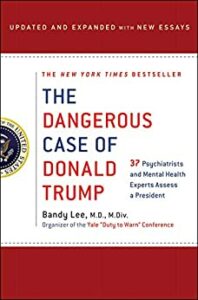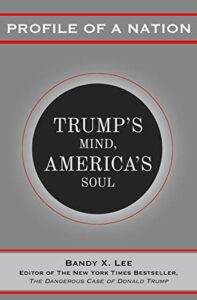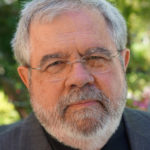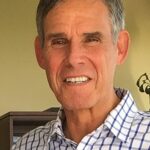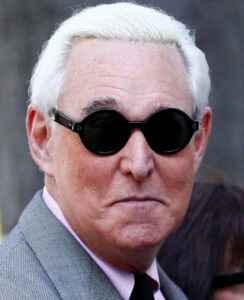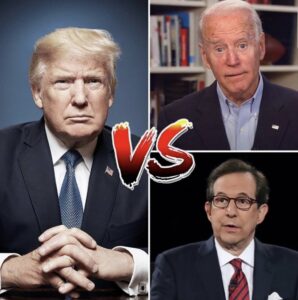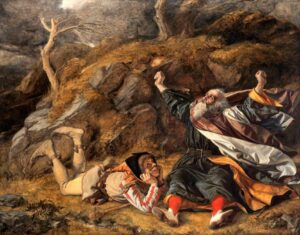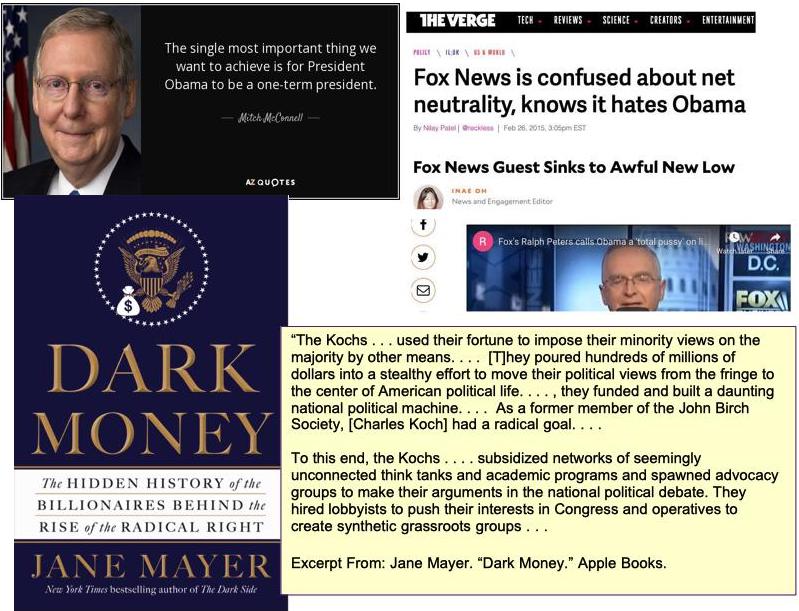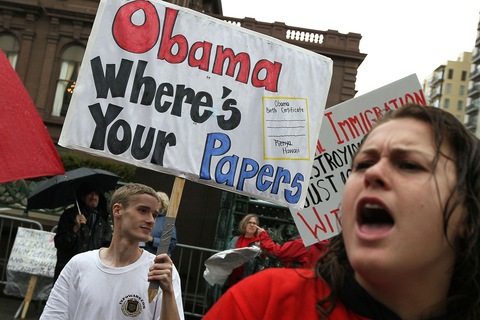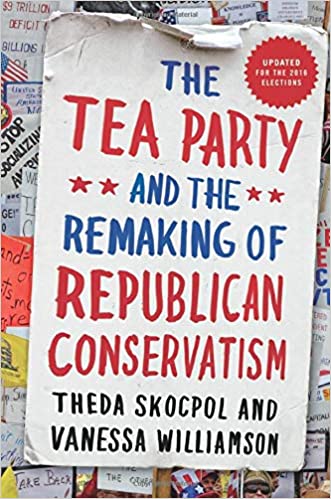The mask has been cast aside; the neoliberal suavity of the Bidens and Obamas, when pulled away, shows the reality that has been at the core of American foreign policy and capitalism and propaganda all along. But its true face is hideous, so all of us who have all their lives been so enamoured and dulled by the pretence of “freedom” and “human rights” protest in horror, aching for the mask of reassuring illusion to be brought back.
Trump’s barefaced vulgarity – his outright disregard for even the most basic norms of human decency – is, in its own way, refreshing.
I much prefer it to Obama’s sleek duplicities and fake sincerity, beneath which he advanced some of the most vicious imperial designs imaginable – including the hyper-militarisation of the Israeli settler colony – far more effectively than Trump ever could.
Trump’s thuggish demeanour is, in fact, quite liberating.
I read the article that expressed much (not all) of what I have been thinking lately — and it gave me the small leg-up I needed to post again, at least for now:
Dabashi, Hamid. 2025. “Why US Liberals Refuse to Acknowledge That Trump Is a Homegrown Dictator.” Middle East Eye. May 12, 2025. https://www.middleeasteye.net/opinion/us-liberals-refuse-acknowledge-trump-homegrown-dictator-why.

It says almost everything that has been hammering away at me these past few months:
Trump is too obvious, too crass, too vulgar an imperialist. Their first instinct is to disown him as an anomaly. He looks like a Latin American dictator, an African despot, an Oriental tyrant, or a Russian czar.
. . . . He cannot possibly be American. Except he is – more than any of them – representing 77,284,118 Americans just like him, who eagerly rushed to vote him into power.
This is a bizarre intellectual malady on full display in the US, where badly defeated and demoralised liberals refuse to acknowledge that Trump is a 100 percent American phenomenon.
He is a homegrown dictator with unabashed fascistic proclivities, barely able to contain his urges, and surrounded by equally 100 percent American sycophants – worse than any clown or court jester ever conjured from their Orientalist imagination.
. . . . This is all American. “Made in America.” It is not an import. They are making America great again!
. . . . If there is any context for Trump, it is the long and recent history of European fascism – from Hitler and Mussolini to Franco, and now all their heir-apparent lookalikes: Viktor Orban, Matteo Salvini, Marine Le Pen, Geert Wilders, Nigel Farage, Boris Johnson, ad nauseam.
. . . . Much closer to Trump are Hitler, Mussolini and Franco – even closer still are the exposed fascistic roots of American so-called democracy.
Go there: go to the roots of America’s claim to democracy, and you will see fascism staring you down.
This is Trump doing exactly what he always said he would. And what he does is backed by his claim to represent the will of the American majority.
And then Hamid Dabashi comes to the raw nerve at the centre of how all this works:
But here is the heart of the paradox: this is not merely the rule of the majority, but the tyranny of the majority – a term made potently insightful by Alexis de Tocqueville in his two-volume diagnosis of the malice and maladies of American democracy, Democracy in America (1835-1840).
But such characterisations should not descend into ad hominem name-calling. Presidents and other leaders become symbolic, allegorical of the nations that elect or tolerate them.
So it is with American presidents. What do they represent? Who gave them the authority to do what they do? The majority of the electorate, of course. And that majority is the point.
Hamid Dabashi goes on to address a core malignity that Alexis de Tocqueville identified almost two centuries ago: the tyranny of the majority, “or what is perceived to be the majority”. European monarchs had the power to control the lives of their subjects but never their minds. I have written about this a number of times over the years. One book I found of special interest because it detailed the way British and American propaganda had cast its pall over Australia — see, for example, the series of posts on Alex Carey’s Taking the Risk Out of Democracy.
[Tocqueville] wrote: “In America, the majority raises very formidable barriers to the liberty of opinion: within these barriers an author may write whatever he pleases, but he will repent it if he ever steps beyond them. Not that he is exposed to the terrors of an auto-da-fe, but he is tormented by the slights and persecutions of daily obloquy.”
That “daily obloquy” is now called doxxing – a vicious act of intimidation perfected by genocidal Zionists against anyone who dares cross the boundaries of manufactured consent that cast Israel as God’s gift to humanity.
. . . . Propaganda organs of liberal imperialism – of the gaudiest and most dysfunctional sorts – like The New York Times, Fox News, and The Wall Street Journal define the boundaries of acceptable discourse.
There may be no visible chains, but the restraints operate through moral and intellectual pressure, daring any would-be dissenter to defy them and speak out.
Tocqueville observed that American “democracy” enslaved the mind, leaving the body to feel free. European despots could only attack a person’s body, but their minds were free and they were able to rise against those despots.
What defines the American predicament is this: how is the opinion of the majority – and thus its unyielding power – manufactured and sustained?
Three ways: through general elections, periodic polling, and, above all, through dominant media outlets.
These institutions manufacture the illusion of majority opinion by demonising critical thought, and by normalising compliance, acquiescence, and subdued fatalism in the face of a cruel fate too deeply internalised to even be recognised.
That is democracy in America.
The article concludes with an editorial disclaimer: The views expressed in this article belong to the author and do not necessarily reflect the editorial policy of Middle East Eye.
They are also my views. I would add one more area not addressed, and one that has been hammering away inside me for some time now, especially since our recent observance of Anzac Day (Australia’s annual day to remember the war dead and war veterans). Why did we — Britain, Australia, the US and the rest — go to war against Germany and then Japan? Why? I had been reading of Japan’s efforts after World War 1 to persuade America, Australia, Britain and France to formalize “racial equality” through the League of Nations that was being nutted out at the time. “We” — our leaders — point blank refused Japan’s request. How was it that whole nations felt such moral outrage that they were prompted to declare war in 1939? How could whole nations be of one mind over an attack on Poland — yet those same nations not feel the slightest twinge of upset over the massacres of Palestinians today? It doesn’t make sense. What is it that has made it unthinkable that anyone among the World War 2 allied nations should question the righteousness of that “war against nazism”? What will future generations, looking back, identify “what it was really all about”?
There was one glimmer of a moment when I really believed, with a little relief and pride, that the Australian government had actually stood up to Indonesia in order to defend the East Timor from invasion. One journalist, John Pilger, at the time wrote cynically that Australian policy was being motivated by the hopes of gaining control of East Timor’s off-shore oil reserves. That was going too far, I and many others thought. Pilger is too much of a lefty, so cynical, he cannot see situations clearly — only through his ideological bias. I was disappointed in Pilger. Years later we learned that Australia had indeed been spying on East Timorese government deliberations and did indeed use their information to demand control of the off-shore oil fields. How easy it was for me and my associates to be swept up in false propaganda myth of our nation fighting for liberty of the oppressed.
(A few days ago I watched an old documentary about how German forces treated peoples they occupied in the 1940s. In response to “terrorist” partisan attacks on them, the German army would slaughter women, children, elderly in villages from where the partisans had come. I would not dare suggest anything similar is happening in the world today among our “friends and allies”, on a far larger scale and not even hidden ….., no?)



